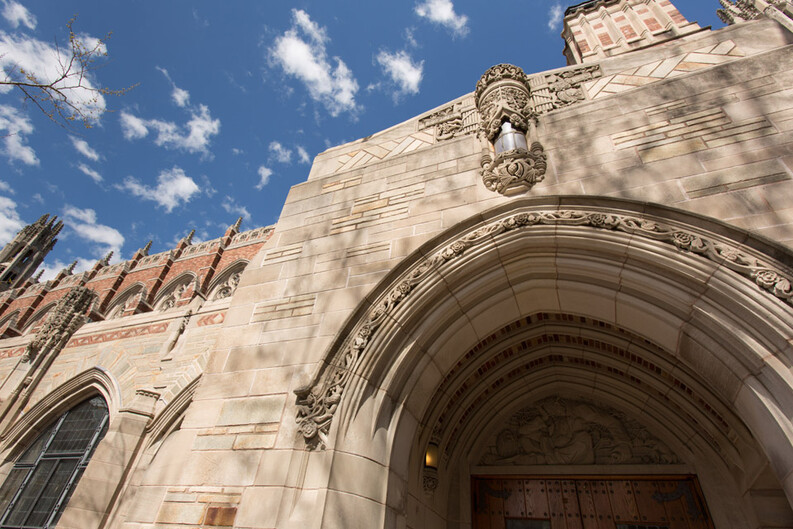MFIA Clinic Seeks to Unseal Source Code of Forensic Statistical Tool

Yale Law School’s Media Freedom & Information Access Clinic filed a motion on behalf of the news organization ProPublica this week in the Southern District of New York. The motion seeks to unseal the source code of the controversial Forensic Statistical Tool (FST) used by the New York State Office of the Chief Medical Examiner (OCME) in processing DNA evidence for state and federal prosecutors. ProPublica is an independent, nonprofit newsroom that produces investigative journalism in the public interest.
Earlier this month, ProPublica reporter Lauren Kirchner published a major investigation in ProPublica and the New York Times detailing the history and use of the FST in criminal proceedings. The FST is used in DNA analysis in criminal investigations to calculate a likelihood ratio, which measures whether it is more likely than not that a known suspect contributed DNA to a given sample versus an unknown subject. In a federal criminal trial in which the FST was used against defendant Kevin Johnson, Judge Valerie Caproni ordered OCME to produce the source code during discovery to allow defense counsel the opportunity to examine it. The defense’s expert witness stated in his affidavit that he “did not leave with the impression that [the] FST was developed by an experienced software development team” and that “the correctness of the behavior of the FST software should be seriously questioned.”
MFIA’s filing on behalf of ProPublica seeks access to the source code of the FST software itself. While OCME ultimately was compelled to disclose the code to Johnson, it did so under a protective order that prevents the defense and its expert from disclosing the code to the public, according to court records. Moreover, large portions of the defense expert’s report on the code have been redacted. The MFIA Clinic has now filed to lift that protective order and to unseal the defense expert’s report.
“We are seeking disclosure of this code because of the considerable public interest in the accuracy of its predictions, and to further scrutiny of its impact,” said Richard Tofel, president of ProPublica. “If we prevail on our motion, we would envision publishing the code alongside an analysis of its likely effectiveness.”
The Johnson case occurs against the background of a significant debate among scientists as to whether the FST procedure is sound. In a Frye hearing in a 2015 New York state criminal case, a number of experts in the field, including Dr. Bruce Budowle, the “father of American DNA analysis” and an architect of the FBI’s national DNA database, cast doubt on the FST methodology. There, the judge concluded that “the FST is not generally accepted in the DNA scientific community,” and held that evidence derived from the FST was inadmissible.
Disclosure of the FST source code would also play a crucial role in the ongoing debate about the use of DNA evidence in criminal investigations. While DNA evidence has become a crucial component of forensic investigations, its use has been criticized in recent years. High profile incidents at DNA labs across the country have shown that flawed forensic techniques and human error in DNA analysis can send innocent people to prison. “This is a major criminal justice issue—DNA evidence can exonerate the innocent, but it can also convict the innocent. We expect DNA to be the gold standard of forensic science, but it undermines public trust in the courts when the method of analysis—in this case the FST source code—is so shrouded in secrecy,” said Aislinn Klos ’18, a law student intern from the MFIA clinic.
OCME has continued to use the FST to test DNA in over a thousand cases in the past six years, according to the clinic. When faced with unfavorable DNA results from the FST, and in fear of how a jury will interpret it, many defendants plead guilty without going to trial, according to defense lawyers quoted in Kirchner’s article.
“It’s important that institutions like the courts, the scientific community, and the press are able to provide checks on the methods used by the government in criminal cases,” said Catherine Martinez ’19, a law student intern from the MFIA clinic. “But their ability to do so is hampered when access to important information—like the FST source code—is limited.”
“The FST source code was developed and used by a governmental agency, and disclosure is essential in order to ensure that the public can oversee and monitor potential mistakes and missteps,” said Hannah Bloch-Wehba, a supervising attorney from the MFIA clinic. “Without full access to the code, experts, journalists, and the public are unable to fully understand how this tool functions.” But OCME has repeatedly refused to release the FST source code to the public, denying requests for disclosure made under New York’s Freedom of Information Law this past summer.
The Media Freedom and Information Access Clinic (MFIA) is a law student clinic at Yale Law School dedicated to increasing government transparency, defending the essential work of news gatherers, and protecting freedom of expression by providing pro bono legal services, pursuing impact litigation, and developing policy initiatives. ProPublica is represented in this matter by law student interns Aislinn Klos ’18 and Catherine Martinez ’19, and supervising attorneys Hannah Bloch-Wehba and David Schulz.


